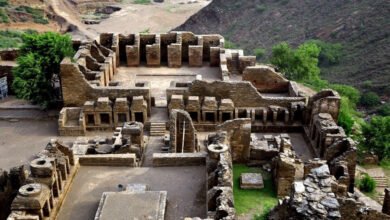
Marrying a non-resident in Pakistan can be a fulfilling experience, blending cultures and creating a unique partnership. However, the process involves specific legal requirements and procedures that must be followed. This guide will outline the steps to marry a non-resident in Pakistan, ensuring you understand the requirements and processes involved.
1. Legal Requirements for Marriage in Pakistan
To marry in Pakistan, both parties must adhere to the country’s legal requirements. Here are the key steps:
- Age Requirement: The minimum legal age for marriage in Pakistan is 18 for females and 21 for males. Both parties must provide proof of age through identification documents.
- Consent: Both parties must freely consent to the marriage. If either party is under the legal age, parental consent is required.
- Marriage Registration: The marriage must be registered with the relevant authorities, such as the Union Council, and documented in a Nikah Nama (marriage contract).
2. Required Documents
When planning to marry a non-resident in Pakistan, ensure you have the following documents ready:
- Valid Passports: Both parties must present their valid passports. This helps establish identity and nationality.
- National Identity Card: The Pakistani citizen must provide their national identity card (CNIC) as proof of identity.
- Visa and Residency Status: The non-resident must provide documents proving their visa and residency status in Pakistan, if applicable.
- Divorce or Death Certificates: If either party has been previously married, they must provide legal documents proving the dissolution of the previous marriage (divorce certificate) or the death of the former spouse (death certificate).
- Witnesses: At least two witnesses must be present during the marriage ceremony. They should also provide valid identification.
3. Marriage Ceremony
Once the necessary documents are prepared, you can proceed with the marriage ceremony:
- Choose a Location: You can have the ceremony at a mosque, wedding hall, or any venue of your choice. Ensure the venue is appropriate for the ceremony.
- Nikah Ceremony: The marriage is officiated by a qualified person, such as an imam or a licensed Nikah registrar. The Nikah Nama is filled out, detailing the rights and responsibilities of both parties.
- Signatures: Both parties, along with their witnesses, must sign the Nikah Nama to make the marriage official.
4. Marriage Registration
After the ceremony, it is essential to register the marriage with the relevant authorities:
- Submit the Nikah Nama: Submit the signed Nikah Nama to the Union Council for official registration. This step is crucial as it legalizes the marriage in the eyes of the law.
- Obtain a Marriage Certificate: After registration, request an official marriage certificate. This document may be required for future legal purposes, such as applying for a visa or residency.
5. Additional Considerations for Non-Residents
- Visa and Residency: If the non-resident spouse plans to stay in Pakistan after marriage, they may need to apply for a visa or residency permit. This process can vary depending on the spouse’s nationality and residency plans.
- Cultural Considerations: Be mindful of cultural differences and expectations surrounding marriage in Pakistan. Engaging in premarital discussions with both families can help foster understanding and acceptance.
Conclusion
Marrying a non-resident in Pakistan requires careful planning and adherence to legal requirements. By gathering the necessary documents and following the outlined steps, you can navigate the process smoothly. Communication, respect for cultural traditions, and legal compliance are essential to a successful marriage. Embrace this journey as an opportunity to build a loving partnership that celebrates both your backgrounds.



